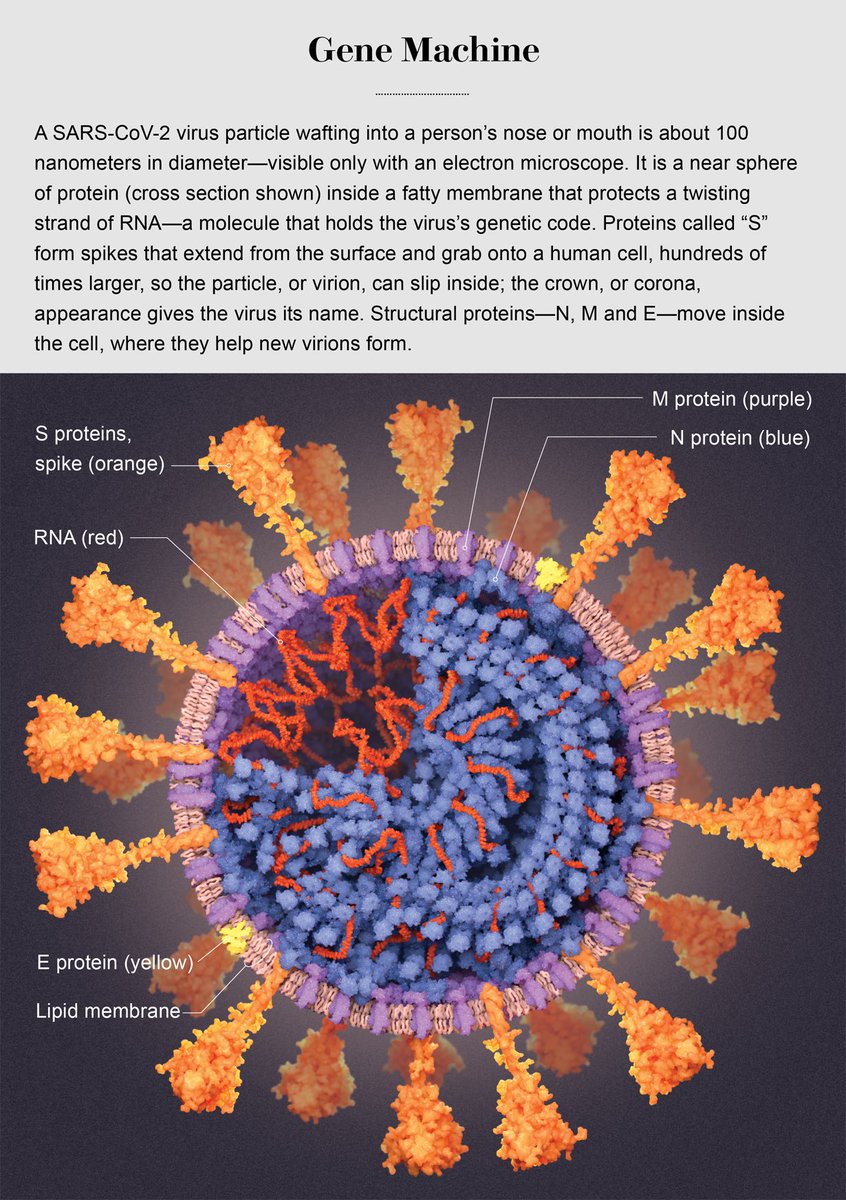
Pandemic rages. Meanwhile scientists are fighting about what open data sharing means and whether you can publish analysis using someone's data if part of their dataset has not yet been published.
https://twitter.com/BallouxFrancois/status/1328668201706778625
For a layperson, what is the issue here?
Scientists often keep data private so that they can publish in high impact journals and avoid others beating them in the publication race.
If you share data pre-publication, others are likely to swoop in and you lose your advantage.
Scientists often keep data private so that they can publish in high impact journals and avoid others beating them in the publication race.
If you share data pre-publication, others are likely to swoop in and you lose your advantage.
In the pandemic, we've seen scientists really step up their data sharing generosity. It's the only way global databases @GISAID, public resources @nextstrain @covidcg can provide big picture, powerful analyses of SARS2. So many analyses have been run on unpublished sequences.
One headache is how to incentivize people to share data pre-publication. There are courtesies including discussing your intended analysis with the data providers and coming to an agreement on how to proceed, e.g., let the data providers publish first.
But where is the limit?
But where is the limit?
If every data provider puts a restriction on the use of their @GISAID sequences until they have personally published each sequence, the entire enterprise will fail. You could wait years for some people to make it past peer review. Your work becomes beholden to their timeline(s).
Can't always add data providers as co-authors because scientists analyzing same data can reach different conclusions. This is especially problematic for scientists w unpopular interpretations & could lead to censorship: You can't use my data because I disagree with your approach.
This challenge is compounded by the fact that these SARS2 data are critical to informing public health decisions and understanding of how the virus is changing. Scientists publish analyses. That's how science works. Not all of us can send our analysis to the government directly.
If scientists can run analysis but only privately convey it to their gov/business contacts, this leads to a whole host of other problems. Scientists have political beliefs and COIs too. Does this mean some political parties/biotechs will have a monopoly over breaking science?
Let's make it specific to the case above. Does it mean that scientists analyzing the full mink SARS2 data can only privately share key findings with their own contacts? That policymaker/scientists need connections to (1) know the analysis was even done, and (2) see the results?
Are we or are we not in the middle of a pandemic where finding out key covid developments, in humans and any other animals, weeks to months late can result in un/misinformed policy-making and cost real human lives?
If scientists are going to start putting usage restrictions on covid data, you have zero ground to criticize govs like China hiding/delaying the release of covid findings (its genome sequence, human-to-human transmission, early data, origins) for months to maintain dominance.
This is not right. Not in the middle of a pandemic. You can't share your data and restrict other scientists from analyzing and preprinting/putting it on a browser until you get through peer review.
https://twitter.com/BallouxFrancois/status/1328821002801963011
You're saying that if a scientist wants to analyze your data, they have to seek your approval or NOT use the data - in the middle of a pandemic!
What kind of precedent are you setting for places where rare SARS2 genomes are detected and sequenced?
What kind of precedent are you setting for places where rare SARS2 genomes are detected and sequenced?
Someone asked if I'm advocating for data parasites (scientists who publish papers using other scientists' data). If I had a SARS2 sequence(s) that no one else had, I would share it fresh off the sequencer - raw data + metadata.
Many scientists spend so much time advising policymakers and the public how to drastically change their lives (their jobs, their everything) in a pandemic.
But YOU won't change your data sharing and scientific publishing practices in a pandemic?
But YOU won't change your data sharing and scientific publishing practices in a pandemic?
Is the Dutch government not going to fund any more mink SARS2 sequencing because other scientists published using your data?
Am I getting this right?
Am I getting this right?
Is @ScienceMagazine @nature @CellCellPress not going to publish your paper because someone else did a similar (but not identical, possibly even contrary) analysis using your unpublished data? In the middle of a pandemic? Despite you being the original data contributor?
You're telling me that millions of people have to live in penury, struggling to pay for their healthcare, struggling with depression, not seeing their family members as they die from covid - and YOU won't let other scientists analyze covid data until you get your paper.
If you're so fantastic about equity, how come none of the farmers are in your authorship? They're the ones whose livelihoods are gone. They're the ones who provided you with these minks. They're just in your acknowledgments for "for sample provision". science.sciencemag.org/content/early/…
• • •
Missing some Tweet in this thread? You can try to
force a refresh



